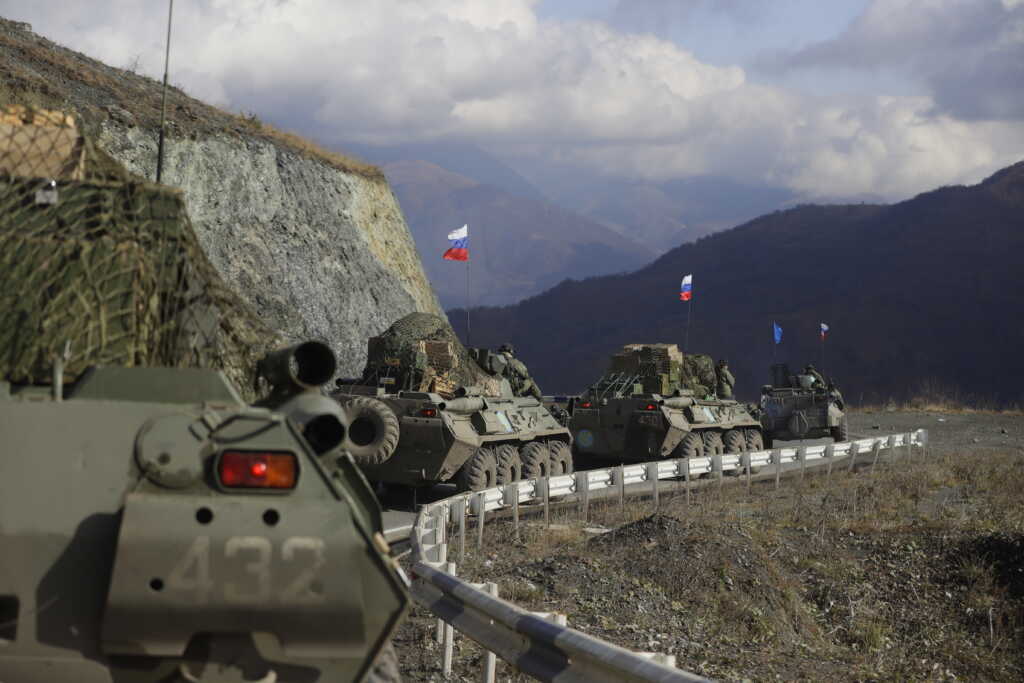Gev Iskajyan, executive director of ANC-Artsakh, is sounding the alarm about the ongoing crisis in Nagorno-Karabakh, a small, landlocked region between Armenia and Azerbaijan.
Listen to the latest episode of CBN’s Quick Start podcast 👇
In a recent interview with CBN’s Faithwire, Iskajyan detailed the rampant desperation residents face more than 60 days after Azebejani protestors blocked the only road in or out of Nagorno-Karabakh, and warned the situation could devolve into a genocide against the Armenian Christians living there.
He said the dire impact the blockage of the Lachin corridor is having on Nagorno-Karabakh — also known as Artsakh — is profound.
“Over 120,000 ethnic Armenians rely on that road [for] food, medicine, even energy and other vital supplies, necessities that the population needs to survive,” he said. “And that’s been essentially shut down … for over … two months now.”
From rolling blackouts to food shortages, the situation is dire, with “scarcity on every single [societal] level.”
Watch Iskajyan’s warnings:
He also spoke about the broader conflict between Armenia and Azerbaijan, explaining how religious identity plays into the dispute.
“Christianity is a bedrock of Armenian identity; it goes hand in hand,” he said. “It has since 300 A.D. “That is a part of the identity that people carry with them every day.”
Iskajyan’s warnings come as several major events surrounding the Nagorno-Karabakh conflict unfold this week. On Wednesday, the United Nations’ highest court ordered Azerbaijan to unblock the corridor and allow free movement in and out of Nagorno-Karabakh.
“The legally binding 13-2 ruling by the International Court of Justice results from the latest legal skirmishes in a long-running feud between Armenia and Azerbaijan over Nagorno-Karabakh,” the Associated Press reported. “Each country filed a case with the court accusing the other of breaching a convention aimed at stamping out racial discrimination.”
In another significant development Thursday, Ruben Vardanyan, head of Nagorno-Karabakh’s government, was removed from office. No reason was given, though he has reportedly clashed with Armenia’s prime minister and Azerbaijan’s government, according to Reuters.
Vardanyan, the former minister of state for Nagorno-Karabakh, told CBN’s Faithwire after the blockade’s beginning last December that the region’s most recent battles stem, in part, from a clash of worldviews.
“One conflict is a democratic country against the non-democratic, autocratic country, because in Azerbaijan, everybody knows we don’t have a democratic system,” Vardanyan said. “And we all know … Azeris, they don’t have rights, really human rights.
The conflict has deep roots, which you can read about here.
It’s unclear what will happen next as the conflict forges on. Azerbaijan’s Ministry of Foreign Affairs said in a statement after the U.N. court ruling that it would “continue to take all steps within its power and at its disposal to guarantee safe movement along the Lachin road.”
It’s unclear what exactly that means, especially as residents of Nagorno-Karabakh continue to sound the alarm about food shortages and restrictions when it comes to seeking essential medical care.
As for Iskajyan, he also shared his personal journey of leaving his native California last year to live and work in Nagorno-Karabakh. Watch him tell his story.
***As the number of voices facing big-tech censorship continues to grow, please sign up for Faithwire’s daily newsletter and download the CBN News app, developed by our parent company, to stay up-to-date with the latest news from a distinctly Christian perspective.***



